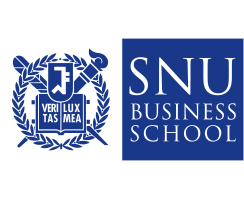SNUbiz News
SNU Biz Social Venture Incubator GCS 2023 Overseas Camp to Vietnam
Written by In-seo Choi, Student Representative of GCS
The overseas camp of the social venture incubator GCS at the SNU Business School was held from Monday, August 21 to 26, in Hanoi, Vietnam. The SNU Business School social venture incubator, GCS, began as a global community service program at the SNU Business School through the sponsorship of alumnus Jae-yeon Won (College of Business Administration, Class of ‘86). The organization transitioned into a social venture incubator in 2018 with the aim of creating a sustainable “social impact.” Nevertheless, the organization’s initial mission of “fostering global leadership” has been sustained through the overseas camps, which, in 2023, was held in Hanoi, Vietnam, and involved activities such as social venture case studies and Hackathons with university students in Vietnam.
The 2023 GCS Overseas Camp was held for six days. Although overseas camps were held before COVID-19 in Ho Chi Minh, Vietnam, all the networks with Vietnam were lost after the pandemic. This gave more significance to this year’s overseas camp in Vietnam, signaling a new start for the GCS overseas camps. GCS members attempted to contact social ventures and universities in Vietnam throughout the first semester, and, as a result, we were able to secure schedules with the social venture Omamori Spa, TOHE Enterprise, Imagtor, and the student volunteer group at Vin University.

We departed in the afternoon on Monday, August 21, and the planned schedule commenced on Tuesday, August 22. On the morning of the 22nd, we took a lecture on the history and culture of Vietnam and its social enterprises given by Project Cung. The lecture presented us with a challenge; despite having completed preliminary research in Korea, we would be unable to conduct case studies and have a Hackathon without a social and cultural understanding of Vietnam. The lecture presented how social enterprises in Vietnam are in a very different situation than in South Korea and what issues they recognized as social problems.
In the afternoon on Tuesday, the 22nd, we visited Omamori Spa, which provides English conversation and massage training programs for the social independence of the visually impaired, to conduct interviews for the case study. While the idea of the visually impaired working in the massage industry cannot be considered an innovation in Vietnam, the project was significant in that it improved the poor working conditions in existing massage shops and disposed of the social image of massage shops being inappropriate.
 ?
?
 ?
?
We met with the student volunteer group at Vin University on the 24th and 25th to explore the Old Quarter, where Hanoi’s traditions are preserved, to discuss social issues, and to participate in a Hackathon to find solutions for the social issues. By defining the issues with the students at Vin University, we were able to identify the “disappearance of traditional arts” as a social issue in Hanoi, after which we divided into two groups, tested our hypotheses, and arrived at our solutions. As a result, the “Traditional Games Education Project,” with its three core values of being easy, fun, and novel, was considered a viable solution and will be implemented by the students in the volunteer group.
 ?
?
The GCS members also engaged in a lively discussion to share the social issues they experienced during their short stay in Hanoi and arrive at conclusions to solve such issues. By following the process of the GCS social venture entrepreneurship team meetings that take place during the terms and proceeding to define problems, test hypotheses, and identify solutions, the members became more eager to solve problems through entrepreneurial thinking and create a better future. This overseas camp allowed GCS members to gain a broader perspective on social ventures through experiences in a foreign country. It is with the hope that the valuable opportunities and experiences become a foundation for the students to continue to be interested in and contribute to social issues after graduation.


